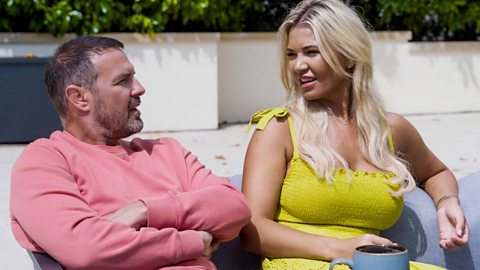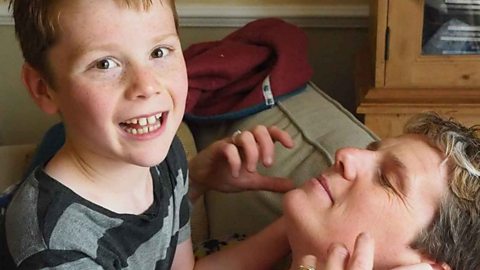Christmas can be a stressful time for all of us. Whether braving the crowds to buy presents for loved ones, making complicated travel plans, working out what food we need to fit in the fridge and whether our bank balance will cover everything; Christmas can be intense.
But for some autistic people, the festive period brings added pressures and anxieties. One of the main reasons Christmas is hard for many autistic people is the sudden changes to their environment. From late November, lights line local high streets, enormous, brightly decorated trees appear in homes, or shops and schools, adverts for Christmas presents bombard our TV screens and the music becomes strangely upbeat and repetitive. It’s a lot for an average neurotypical person but some autistic people, especially children, may find this time of year overwhelming.

Why can Christmas be difficult for autistic children?
Christmas can be particularly hard for younger autistic children who may not understand why there are suddenly lights and decorated trees and why they may be asked to perform in a nativity play in front of their friends and families.
Christine McGuinness is usually more anxious around this time of year as her three autistic children struggle with the changes. In fact, Christine’s children found their first Christmas at school a tough time.
“The first Christmas, there was suddenly this big, massive Christmas tree in the school hall. So, my children would not walk through the school hall.”
Christine was mindful of the big changes coming their way and worked closely with the school to ensure they weren’t too overwhelmed by the experience.
“The school understand that by telling them there’s going to be a tree in there tomorrow, we'll go and have a look at it. And the next day, we'll decorate it. And the day after that we'll put some lights on.
"And slowly, we do the same at home. We make a visual calendar of what we’re doing. It's just preparing them for something that's going to be different.”

Over-stimulation at Christmastime
A lot of it has to do with the changes being over-stimulating.
Many autistic people struggle with over-stimulation of their senses. These sensory differences can affect how they feel and behave so it’s easy to see how Christmastime makes them feel more vulnerable.
Walking down your local high street on a Monday evening in June - you may pass a few people on your way home. But, come the first Monday of December, the crowds grow, the lights are bright and flashing, the music and the chatter get louder – all that is very difficult to process.
Christine says “I remember speaking to one of the specialists years ago with the children. And she said, 'If I could cancel Christmas, for autistic children, I would cancel it because it affects them all.' It’s overwhelming. It’s over sensory. It’s taken years, but we’ve learned how to manage it now. And our children are getting better. They're understanding more.”
Why can Christmas Day be over-stimulating?
There are plenty of over-stimulating aspects of Christmas Day, itself. The rich foods and flavours, strong scents of pine, cinnamon, and nutmeg but one of the most over stimulating aspect of the festivities, particularly for young children are the presents.
“We know that giving our children a stack full of presents on Christmas Day is not going to make them happy,” says Christine.
“It’s going to make them overwhelmed. The excitement turns into a meltdown, so it ends up being quite a negative experience.”
We’ve all had a sneaky look under the Christmas tree and tried to guess what’s underneath all the wrapping paper but the idea of wrapping a present, especially with patterned wrapping paper can be confusing for an autistic person.
Christine admits that she does not wrap up the Christmas presents for her children.
“We put [the presents] in bags, because they don’t like not knowing what's inside.”

How Christine McGuinness spends Christmas with her family
Christine’s approach to Christmas Day isn’t unusual. Some autistic people can get confused if they see a wrapped present. Some take the object at face value. It could be a red rectangular box with a Santa Claus print on it. However, under that red paper could be a toy truck in a cardboard box. That conflicting information can be overwhelming.
Some parents prefer to tell their children what gifts they have, like a planned surprise. Others, prefer to buy their presents with their children. Every autistic child is different, and each parent takes a different approach. It’s all about a learning curve.
“It's just little tips and tricks and things that you can do for a happier quieter Christmas.” she says. “I save a fortune on wrapping paper!”
How to make the most of Christmas
Peter Watt, Managing Director of National Programmes at the National Autistic Society, says: “Christmas is a time of joy and celebration for much of the country, including many autistic children and adults. But for some autistic people it can also be overwhelming at times.
“Being autistic means you see, hear and feel the world in a different, often more intense way. The changes to routine in the festive period and additional social expectations can trigger anxiety, particularly if they’re unexpected. Some autistic people with sensory sensitivities may also find the bright Christmas lights, decorations and different foods difficult to deal with, or even distressing.
“But good planning and small adjustments can make all the difference – and make sure everyone enjoys Christmas. It could be as simple as agreeing a schedule for the Christmas period with the whole family, keeping meal times the same, or making sure there’s a quiet space to relax if someone is feeling overwhelmed. Every autistic child and adult is different, so they must be involved in all planning. These small adjustments will mean that Christmas will be an inclusive and joyous time for everyone."
By Niamh Hughes, ±«Óătv News

For more help navigating Christmas for you and your autistic child – the National Autistic Society have this collection of
Watch Paddy and Christine McGuiness: Our Family and Autism on iPlayer now.

More from ±«Óătv Bitesize Parents' Toolkit
Parents' Toolkit
Fun activities, real-life stories, wellbeing support and loads of helpful advice - we're here for you and your child.

Christine McGuinness: Unmasking My Autism - advice for parents
What is autism 'masking' and how can it help you to understand your child?

How to tackle anxiety: Breathing techniques. video
Dr Anna demonstrates some quick breathing exercises to help keep anxiety and panic at bay.

Christine McGuinness - How my autism can help me to help my kids
Christine McGuinness talks about the positives and challenges she's faced through her life as a mum since diagnosis.

How home schooling helped my child with AuDHD
Sarah Barker describes her son's transition from mainstream school, to home schooling, then to special school. From ±«Óătv Bitesize.

Kim-Joy: Five tips (and a recipe) to get your kids helping at Christmas
Bake Off star Kim-Joy has tips for getting kids to help at Xmas - and a delicious recipe for reindeer themed biscuits.
